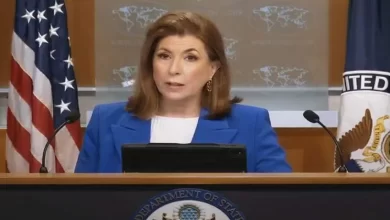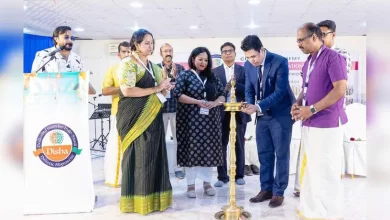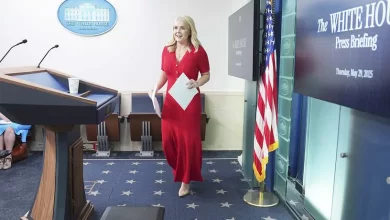UNSC meeting: India asks countries to respect sovereignty, territorial integrity and international agreements

United Nations: In an apparent jibe at China, India has cautioned against any “double standards” on the issue of combating terrorism and emphasised that any “coercive or unilateral” action that seeks to change the status quo by force is an affront to the principle of common security.
India’s Permanent Representative to the UN, Ruchira Kamboj, addressing a United Nations Security Council (UNSC) meeting on the topic ‘Promote Common Security
Through Dialogue and Cooperation’ on Monday said that all countries should respect each other’s sovereignty and territorial integrity and respect international agreements.
The UNSC meeting was convened at the behest of China, the president of the Security Council for August and a veto-wielding member of the 15-member Council.
In her remarks, Kamboj noted that one of the guiding questions posed by the Presidency for the meeting is what constitutes “common security?” “Common security is also only feasible when all countries stand together against common threats such as terrorism and do not engage in double standards while preaching otherwise,” Kamboj said in an apparent jibe towards China and its close ally, Pakistan.
China has repeatedly blocked the attempts of India and the US at the UN to blacklist Pakistan-based terrorists. The latest instance was the hold placed by China earlier this month when India and the US sought UN sanctions on Abdul Rauf Azhar, the brother of Pakistan-based Jaish-e-Mohammed (JeM) chief Masood Azhar. Beijing has said that it needs more time to assess the application to list Azhar as a global terrorist.
In her remarks, Kamboj also took a veiled swipe at Beijing over its aggressive behaviour in the region.
“Any coercive or unilateral action that seeks to change the status quo by force is an affront to common security. Further, common security is only possible when countries respect each others’ sovereignty and territorial integrity, as they would expect their own sovereignty to be respected,” Kamboj said.
“Common security is also possible only if countries respect agreements signed with others, bilateral or multilateral, and do not take unilateral measures to nullify those very arrangements to those they were party to,” she said as India has insisted that China has violated border pacts by amassing its military in eastern Ladakh in 2020.
The eastern Ladakh border standoff between India and China erupted on May 5, 2020, following a violent clash in the Pangong lake areas. Both sides gradually enhanced their deployment by rushing in tens of thousands of soldiers as well as heavy weaponry.
The standoff has taken bilateral relations to an all-time low.
She further said that the underlying principles behind “common security” lies in upholding the rules-based international order, underpinned by international law, premised upon respect for the sovereignty and territorial integrity of all member states, resolution of international disputes through peaceful negotiations and free and open access for all to the global commons.
China also has territorial disputes with many countries in the region. China has also threatened to forcibly reunify Taiwan with the mainland in case the self-ruled island takes steps towards seeking independence.
China claims nearly all of the disputed South China Sea, though Taiwan, the Philippines, Brunei, Malaysia and Vietnam all claim parts of it. Beijing has built artificial islands and military installations in the South China Sea. China also has territorial disputes with Japan in the East China Sea.
In her remarks, Kamboj said that the meeting is an opportune moment to engage in a serious discussion about India’s call for reformed multilateralism, at the core of which lies the reform of the UN Security Council.
The UNSC is a body that was founded in the aftermath of the Second World War, which continues to reflect in its decision-making, 77 years later, the fundamentally flawed premise of “to the victors belong the spoils” will continue to be confronted with a crisis of confidence and credibility, she said.
Kamboj said that the world today is beset with multiple challenges like Terrorism, radicalism, threats and challenges from new and emerging technologies, climate change, pandemics, the intensifying geopolitical competition and many more.
Each of these directly affects the lives of one and all.
“An armed conflict in one part of the world has cascading effects on the people of another. We have seen the effect of the Ukraine conflict on other developing countries, particularly, on the supply of food grains, fertilizer and fuel. The impact of the crisis in Afghanistan is still being felt throughout the region,” she added.







